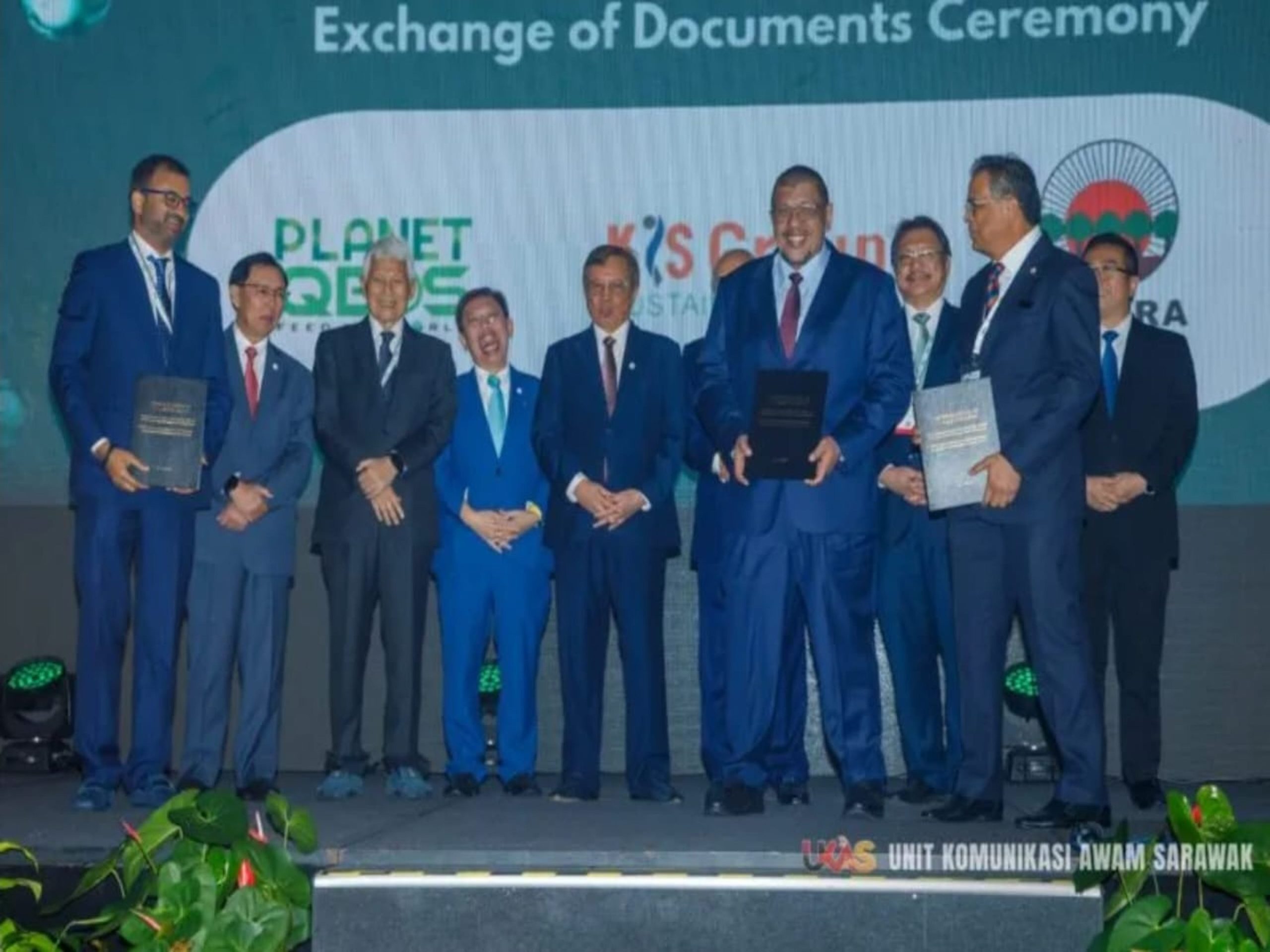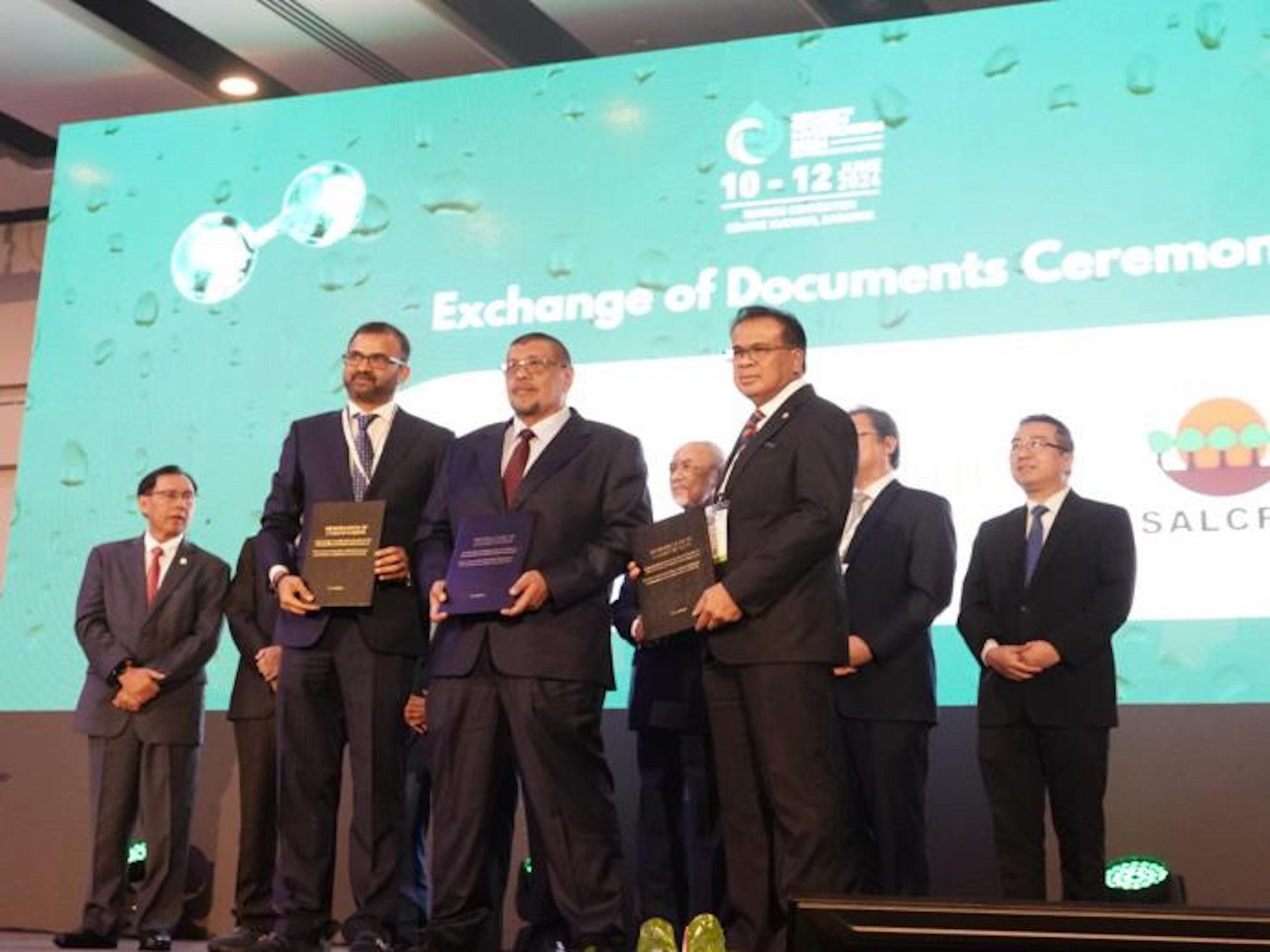Planet QEOS, KIS BlOCNG San Bhd, and the Sarawak Land Consolidation and Rehabilitation Authority (SALCRA) have officially signed a tripartite memorandum of understanding (MoU) to establish a collaborative framework aimed at producing bio-hydrogen via the Steam Biomethane Reforming (SBMR) Process.
The MoU was signed by Planet QEOS executive chairman Dino Bidari, KIS BIOCNG San Bhd chief executive officer Raghunath K.R., and SALCRA deputy general manager Sikin Sentok.

The ceremony was witnessed by Premier of Sarawak Datuk Patinggi Tan Sri Abang Johari Tun Openg and Sarawak Minister of Food Industry, Commodity and Regional Development (M-FICORD) Dato Sri Dr Stephen Rundi Utom at the inaugural Asia Pacific Green Hydrogen Conference and Exhibition 2024 (APGH 2024) held at Borneo Convention Centre Kuching (BCCK) here today.
According to a press release issued afterwards, through the MoU, Planet QEOS will act as the bio-hydrogen producer, leveraging the advanced SBMR Process to generate hydrogen. Meanwhile, KIS BIOCNG will provide the necessary technology for biogas and bio-methane production, which serves as the essential feedstock for the SBMR Process.
SALCRA, on the other hand, will supply the feedstock for bio-methane production from its palm oil mills and utilise its existing biogas production facilities. “The primary aim is to generate sustainable and cost-effective bio-hydrogen for commercial use in Sarawak.

“The successful execution of this project will serve as a benchmark and proof of concept for harnessing waste from the extensive 1.8 million hectares of palm oil plantations in Sarawak for bio-hydrogen production.
“This initiative promises not only to create a sustainable palm oil industry by converting waste from palm oil mills into bio-hydrogen but also to bring substantial economic benefits,” it said.
Source: Dayak Daily

